by James A. Bacon
Governor Glenn Youngkin made a national name for himself by standing up for parents’ rights in public education. His administration has engaged in bruising battles over transgender policy, critical race theory, and educational standards in K-12 schools. His approach to higher-ed issues has been far less contentious. Other than fighting for a year-long freeze in college tuition & fees, which he won, Youngkin’s higher-ed policy has generated few headlines.
That doesn’t mean Youngkin has neglected higher education. Rather than take a confrontational approach, such as seen in Florida and North Carolina, the governor is trying to work within the system. In a keynote address delivered to the American Council of Trustees and Alumni (ACTA) Friday, Guidera described the administration’s philosophy. (The event was heavily attended by students, faculty and alumni represented by the Jefferson Council.)
The purpose of higher education is to equip students to become more productive and constructive members of society, Guidera said. Allowing free speech, free inquiry and intellectual diversity is critical to achieving the larger goal. It is important, she said, for students to “be confronted with ideas and beliefs [they] have never encountered before.”
Rather than enact legislation, Youngkin has chosen to work with the Council of Presidents, comprised of the presidents of Virginia’s public colleges and universities. He has met with the Council every quarter, something that no previous governor did before, Guidera said. In those meetings he has been clear about his support for “a culture of free expression.” Continue reading

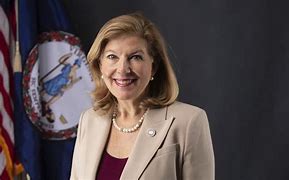
 The Jefferson Council invites you to hear George Will April 25th at the University of Virginia. The topic of his address could not be more timely: “The Bad Ideas Fueling Today’s Attack on The Best Idea — Free Speech.”
The Jefferson Council invites you to hear George Will April 25th at the University of Virginia. The topic of his address could not be more timely: “The Bad Ideas Fueling Today’s Attack on The Best Idea — Free Speech.” The University of Virginia was the first stop for Douglas Murray, author of “The War on the West,” in a multi-campus speaking tour last month. He was accompanied by Marion Smith, president of the Common Sense Society, the lead organizer of the tour. (The Jefferson Council co-sponsored Murray’s appearance at UVa.)
The University of Virginia was the first stop for Douglas Murray, author of “The War on the West,” in a multi-campus speaking tour last month. He was accompanied by Marion Smith, president of the Common Sense Society, the lead organizer of the tour. (The Jefferson Council co-sponsored Murray’s appearance at UVa.)
 by James A. Bacon
by James A. Bacon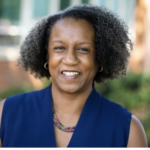
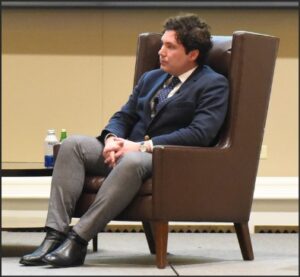 In our annual meeting on April 4th, you will hear how the Jefferson Council is fighting for free speech and intellectual diversity at the University of Virginia, and how our struggle is just one front in a nationwide alumni rebellion to reclaim America’s universities from the left. From Marion Smith, president of the Common Sense Society, you’ll hear how the crusade to restore American universities is part of an even larger war of the woke on Western Civilization.
In our annual meeting on April 4th, you will hear how the Jefferson Council is fighting for free speech and intellectual diversity at the University of Virginia, and how our struggle is just one front in a nationwide alumni rebellion to reclaim America’s universities from the left. From Marion Smith, president of the Common Sense Society, you’ll hear how the crusade to restore American universities is part of an even larger war of the woke on Western Civilization.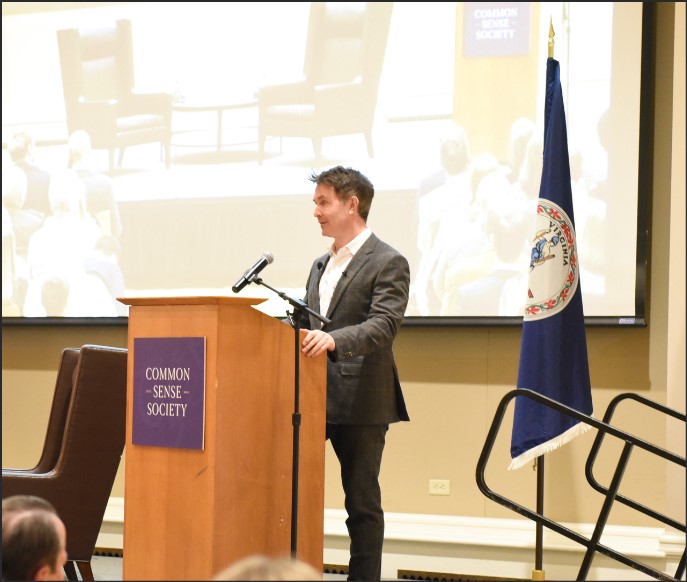












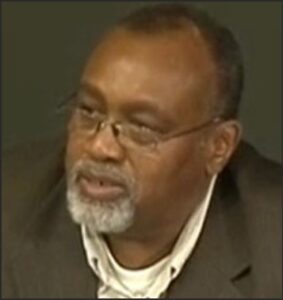 Glenn Loury is one of the foremost African-American intellectuals in the country. No, actually, that’s selling him short. He’s one of the foremost intellectuals – period — in America. As an economics professor at Brown University, an author, a columnist, a podcaster, and a self-described “liberal who has been mugged by reality,” he has emerged as a leading conservative voice in the debate over Diversity, Equity & Inclusion.
Glenn Loury is one of the foremost African-American intellectuals in the country. No, actually, that’s selling him short. He’s one of the foremost intellectuals – period — in America. As an economics professor at Brown University, an author, a columnist, a podcaster, and a self-described “liberal who has been mugged by reality,” he has emerged as a leading conservative voice in the debate over Diversity, Equity & Inclusion.

